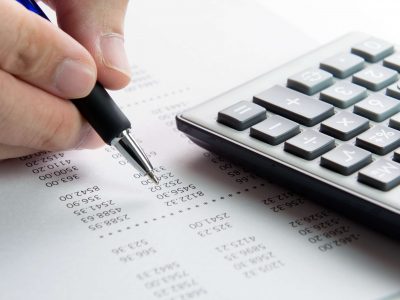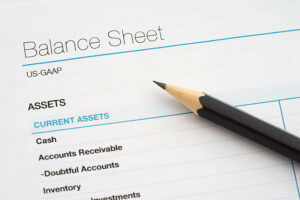
Nowadays, blockchain reshapes the functionality HOA Accounting of the fintech industry, invoking a significant interest in institutions that work with financial operations directly. We’re talking about accounting, which starts integrating blockchain technology to its daily operations. The uptick in businesses exploring how to adopt blockchain technology continues.
The Pros and Cons of Credit Cards in B2B Payments
However, challenges such as understanding blockchain intricacies and adapting to new methodologies must be overcome. Overall, blockchain’s impact on audit practices paves the way for more efficient, accurate, and trustworthy financial reporting processes. With blockchain, auditors can directly access the ledger and verify the accuracy of transactions without going through multiple documents or data sources. This also lowers the risk of human errors during reconciliation, resulting in more efficient and accurate accounting. The introduction of distributed ledgertechnology, or what is known as blockchaintechnology, has challenged current methodsof doing business. Ifthe adoption of new technologies such as blockchainchanges the process of conducting transactions,accountants and auditors should understand thechanges to correctly reflect them in their work.

Blockchain for Asset Management
Accountants will not need to be engineers with detailed knowledge of how blockchain works. But they will need to know how to advise on blockchain adoption and consider the impact of blockchain on their businesses and clients. They also need to be able to act as the bridge, having informed conversations with both technologists and business stakeholders. Accountants’ skills will need to expand to include an understanding of the principle features and functions of blockchain – for example, blockchain already appears on the syllabus for ICAEW’s ACA qualification. The parts of accounting concerned with transactional assurance and carrying out transfer of property rights will be transformed by blockchain and smart contract approaches. This could threaten the work of accountants in those areas, while adding strength to those focused on providing value elsewhere.
Cross border payments

Many accounting firms seek advanced technologies to streamline tasks, enhance efficiency, and improve accuracy. It offers a more secure, transparent, and efficient approach to managing financial transactions, which can help firms reduce fraud, streamline audits, and improve compliance. Nevertheless, it is https://gardeshonline.com/bookkeeping/stocks-vs-bonds-differences-and-similarities/ important to remember the existing threats of cyber attacks on the users’ non-custodial wallets, smart contracts, and network nodes.
In particular, accountants might have to do less bookkeeping and auditing because those tasks could easily be automated so that it is easy to authenticate records in real-time. Since blockchain is an immutable neutral source of accounting data in a triple entry arrangement, actors in an organization will have to think twice before engaging in fraud activities. Meanwhile, transactions in the financial records of a business can easily collaborate with the financial records of the other businesses on the supply chain. Even so, a wide range of approaches have emerged that may lead to block-chain accounting systems (see Exhibit 3). The technology also combats tax fraud by reducing opportunities for false reporting or income underreporting.
Consider a multinational retail company that sources goods from global suppliers. Each transaction—from purchasing raw materials to final delivery—is recorded on a blockchain ledger. For instance, when a supplier ships goods worth $2 million, the blockchain automatically logs the shipment details, such as date, quantity, and value.
- This case demonstrates how blockchain eliminates intermediaries, accelerates transactions, and reduces costs in cross-border remittances.
- Transactions placed through a central authority can take up to a few days to settle.
- In a public network, a group of participants (or participant) with 51% of the computing power may collude to revise transactions in the network.
- At that rate, it’s estimated that the blockchain network can only manage up to 10 transactions per second (TPS).
- The technology uses cryptographic techniques to ensure transaction data is secure and tamper-proof.
Their task is to validate the transaction by confirming the identity and verifying funds. The core idea of blockchain decentralization is that no single entity can have full control over the transactions, and multiple parties can blockchain in accounting validate them. This effectively means that Person A has a copy of all of their information as does Person B, and as does the next person. In a decentralized environment, all participants have access to the same information and users can then choose to share it or not. Information will no longer need to be aggregated and stored in central databases as it will be stored everywhere at once and, if desired, under direct user control rather than the company offering the service.

Strengthening trust in the profession

It also guarantees that the record cannot be manipulated—no one can change the record. This level of immutability is why blockchain technology is commonly referred to as a “trust machine”. The shared or distributed ledger becomes easy to use with multiple players. Indeed, the businesses in the entire supply chain of a particular good can access and provide data to the shared ledger. The move to a financial system with a significant blockchain element offers many opportunities for the accountancy profession. Accountants are seen as experts in record keeping, application of complex rules, business logic and standards setting.
- In this post, we’ll focus our attention on how blockchain affects the accounting industry and what impacts this technology can have on your small business finances.
- Integrating blockchain technology into accounting practices drives significant cost reductions across sectors.
- With many practical applications for the technology already being implemented and explored, blockchain is finally making a name for itself because of the demand and popularity of Bitcoin and cryptocurrency.
- In addition, the industry-disrupting technology offers added security and more ways to gather audit evidence.
- It opens up new opportunities for people previously excluded from traditional banking, offering faster, more affordable, and more secure financial services.
Generating these hashes until a specific value is found is the “proof-of-work” you hear so much about—it “proves” the miner did the work. The sheer amount of work it takes to validate the hash is why the Bitcoin network consumes so much computational power and energy. In Bitcoin, your transaction is sent to a memory pool, where it is stored and queued until a miner picks it up. Once it is entered into a block and the block fills up with transactions, it is closed, and the mining begins. Realizing these gains, however, requires more than technical implementation. It demands a precise understanding of compliance requirements, security protocols, and financial user behavior.
Deja un comentario